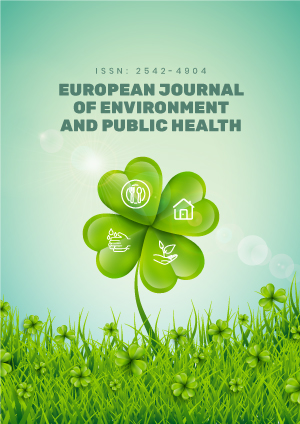Abstract
Background: As the pandemic has unfolded across an array of communities worldwide, telemedicine has been promoted and scaled up to attend to and reduce person-to-person transmission of COVID-19 in the U.S. and internationally. This study examined the major barriers to adoption of telemedicine among primary healthcare providers at a primary care clinic in north Texas during the pandemic.
Methods: A self-administered questionnaire was mailed to 67 primary healthcare providers at a primary care clinic in north Texas, with a 70% percent response rate (n=47). The survey collected information on perceived barriers to telemedicine adoption and experience with telemedicine in the last 12 months. In addition to descriptive statistics, multiple logistic regression was conducted to determine characteristics related to use of telemedicine in the past year. Chi-square tests were also performed to examine the relationship between the number of perceived barriers and telemedicine usage.
Results: Results revealed that the lack of reimbursement was a significant obstacle to telemedicine adoption. Plus, the number of perceived barriers to telemedicine usage was negatively associated with using telemedicine.
Conclusions: The findings suggested that the barriers to using telemedicine existed across an array of situations and that decreasing these obstacles would be critical in encouraging future telemedicine adoption among providers during and after the pandemic. This will especially be the case for primary care practices where scarce financial resources have been a traditional problem for such providers. This complicacy is likely to be amplified owing to the inimical effects of the pandemic, during and after its potential containment or successful management of it.
License
This is an open access article distributed under the Creative Commons Attribution License which permits unrestricted use, distribution, and reproduction in any medium, provided the original work is properly cited.
Article Type: Research Article
EUR J ENV PUBLIC HLT, Volume 6, Issue 1, 2022, Article No: em0106
https://doi.org/10.21601/ejeph/11804
Publication date: 23 Feb 2022
Article Views: 3237
Article Downloads: 2847
Open Access References How to cite this article
 Full Text (PDF)
Full Text (PDF)